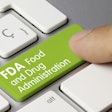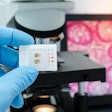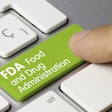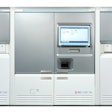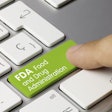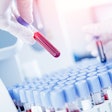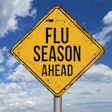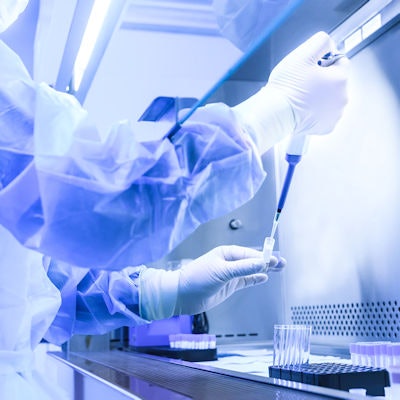
During the COVID-19 pandemic, research and clinical laboratories have been working overtime to develop tests that would help them identify and understand SARS-CoV-2. These laboratory-developed tests have become an essential component in the fight against the virus.
Labs developing their own tests for a variety of conditions make up a significant part of testing in the U.S. and other countries, according to Kalorama Information, a sister company of LabPulse.com. While there is a $70 billion market for IVD products, commercial tests are not always sufficient for demand. Laboratory-developed tests were controversial before the COVID-19 pandemic, and there were attempts at imposing more scrutiny on them in the U.S., where an enforcement loophole has kept labs relatively unregulated by the U.S. Food and Drug Administration (FDA).
The majority of laboratory-developed tests are based on molecular diagnostic technologies such as nucleic acid amplification, array-based hybridization, next-generation sequencing, and liquid biopsies. The FDA regulates tests sold as kits by diagnostic companies to clinical laboratories but has exercised "enforcement discretion" regarding laboratory-developed tests.
Prior to pandemic, loose regulation
Although the FDA has issued statements about the topic, it has not been regulating tests that are developed and performed by a single laboratory. The U.S. Centers for Medicare and Medicaid Services (CMS) regulates clinical laboratories, ensuring that all facilities (including labs performing genetic testing) comply with CLIA regulations.
The CLIA regulations cover the certification of testing quality, including both procedures and education of technicians performing tests, and also proficiency testing in some cases. The FDA's regulatory authority is broader and includes regulating safety and effectiveness of genetic tests as medical devices.
In November 2016 the FDA indicated that it would delay finalizing draft guidance on laboratory-developed tests. On January 13, 2017, the agency issued a "Discussion Paper on Laboratory Developed Tests." This document synthesized feedback that the FDA received on 2014 draft guidance and proposed a prospective oversight framework.
Some of the proposals in the discussion paper include "grandfathering" laboratory-developed tests (except when required to protect public health), exempting certain categories of new or significantly modified laboratory-developed tests, and reducing the timeframe for phasing in regulation of laboratory-developed tests with risk-based and phased-in oversight.
Unexpected demand
Subsequently, there were no updates from the FDA on progress toward regulating this segment of the industry, but more enforcement of laboratory-developed tests. The emergence of COVID-19 and a delay in the market entry of commercial tests for the virus has reset the debate to some extent.
An attempt to bridge the standoff in 2020 proved ill-timed. In March, lawmakers revived a bill that would increase stringency of the oversight system for diagnostics in the U.S. and give the FDA explicit authority to regulate tests developed by labs. The bipartisan Verifying Accurate, Leading-edge IVCT Development (VALID) Act had been designed to streamline regulations and speed access to tests in public health emergencies like the present COVID-19 pandemic. While it removed the FDA requirement for approval in national emergencies, it gave the agency the power to regulate a new category of diagnostics: in vitro clinical tests (IVCTs).
Labs had wanted to conduct testing as soon as the virus emerged in the U.S. but needed to be sure of the regulatory situation first, causing a delay. For instance, when media reports in January stated that the SARS-CoV-2 virus had reached the U.S., lab professionals said they were hesitant to launch laboratory-developed tests. They were unsure if the agency would practice "enforcement discretion." Initially, Congress disfavored laboratory-developed tests, excluding them from funding in early coronavirus bills and adding it in after protest from the Association for Molecular Pathology (AMP) and other organizations.
Laboratory-developed tests were critical for the crisis in late March and are likely to account for a fair number of the total tests run for COVID-19. In a recent survey conducted by the AMP after the introduction of commercial coronavirus tests by major IVD manufacturers, 21% of labs said that laboratory-developed tests were their primary testing method.
The AMP supports a bill introduced by Sen. Rand Paul (R-KY) called the Verified Innovative Testing in American Laboratories (VITAL) Act of 2020. Its main provisions clarify the regulation of laboratory-developed tests within the CLIA program under CMS and not the FDA, including during a public health emergency, and define laboratory-developed tests as a professional medical service, a position that AMP has supported for many years. While the legislation was not acted on, some organizations have lobbied to finalize changes to proposed legislation by the end of the year.
Furthermore, the American Association for Clinical Chemistry (AACC) urged Congress to exempt the many national and regional clinical laboratories that are separate from the public health system, but that also have the expertise and capacity to develop and perform coronavirus tests. As early as 2014, the AACC warned that "too much additional FDA oversight could prevent labs from helping underserved patient populations."
Bruce Carlson is the publisher of Kalorama Information, part of Science and Medicine Group.
Disclosure: LabPulse.com is a sister company of Kalorama Information.








